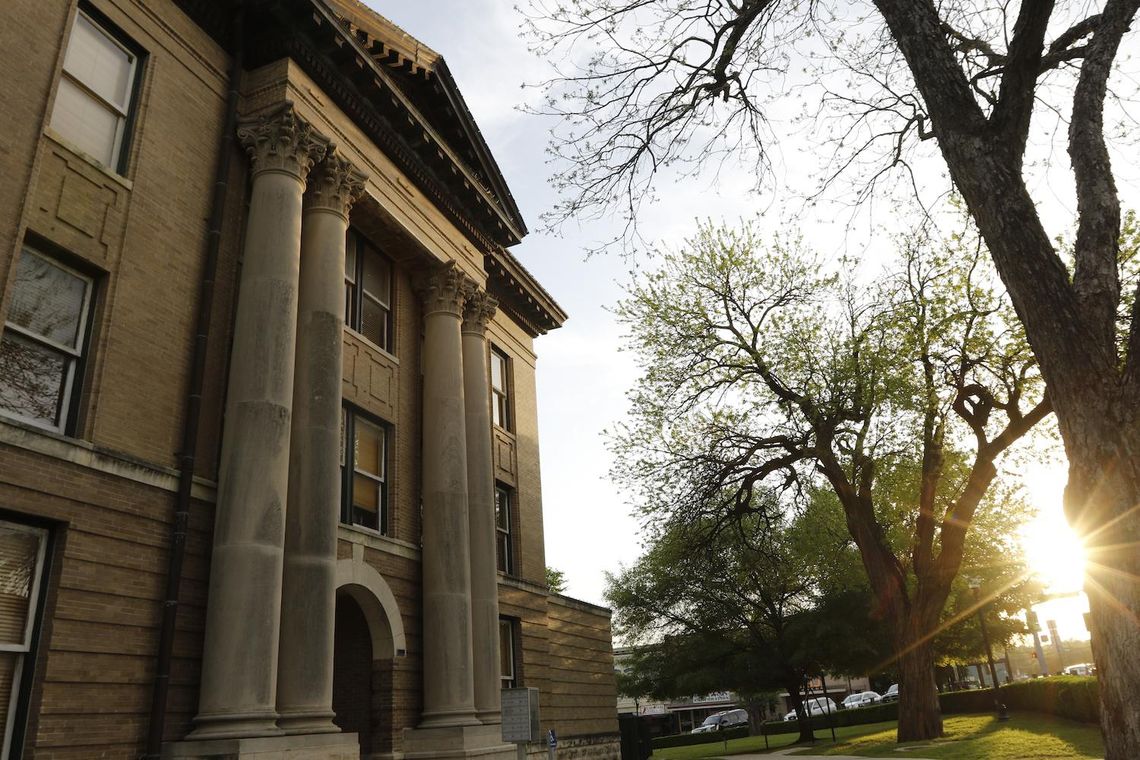The Hays County Criminal Justice Coordinating Commission will meet Thursday for the first time since November to discuss again, the possibility of a Public Defender Office in Hays County.
Despite missing the priority deadline for grant applications to the Texas Indigent Defense Commission (TIDC) on May 11, there is still an opportunity to apply if the commission agrees to move forward.
The TIDC customarily provides decreasingly supportive 4 year grants to counties to kickstart their Public Defender Office. For example, in the first year the TIDC may provide 80% of the funding and Hays County would provide 20%. In the second year, TIDC may provide 60% and Hays County would provide 40%. The cost for Hays County would increase until it is fully funding the office in year five.
A Public Defender Office’s goal may be to provide holistic representation for a percentage of all of indigent cases. Travis County’s new Public Defender Office goal is to work up to representing 30% of indigent clients by 2024. Their role, aside from ideally providing better outcomes, involves addressing a client holistically, rather than just addressing their case. They can provide housing, mental health treatment or address addiction issues as a way to return the offender to a better position in society.
Hays County has made some recent strides in providing more accessible indigent defense services including the Indigent Defense Coordinator position, the Padilla Services, the new Mental Health Court and the magistrate study with Harvard and Texas A&M which has been put on hold due to the pandemic.
The TIDC conducted a study on what it would look like to create a Public Defender Office in Hays County and found that whether they create a county department or run it through a nonprofit, the office would not result in any cost savings to the county.
There would be cost savings for the first two years if the goal of the office was to provide representation for 50% of cases. If the county aimed to have the office provide representation in 15% of all indigent cases, they would see cost increases all years, even with TIDC grant funding.
The TIDC predicts the county would increase indigent defense spending by $884,151 in a county department run model taking 15% of cases, and $420,905 in a nonprofit model run by Texas RioGrande Legal Aid (TRLA) over 5 years. Taking 50% of cases, they predict spending increases of $1,694,979 in a county department model, and $1,290,317 in a TRLA run model over 5 years.
For context, Hays County spent $1,512,805 on indigent defense costs in 2019.
There are however other benefits to creating a Public Defender Office. From the report, “TIDC has found a public defender office would likely improve indigent defense quality, constitutional compliance, and accountability ... While up front indigent defense costs increase in years three and beyond, the county should also experience the benefits of a public defender office, like attorneys being available to reliably attend all dockets; caseworkers who can improve access to social services; improved attorney oversight; accountability and quality controls; better data collection; reduced jail populations; and higher misdemeanor appointment rates.”
The remaining 85% or 50% of indigent cases would continue to be represented by a rotation of all attorneys that are qualified to be an indigent defender in Hays County. This poses the question of which cases are selected to be represented by the Public Defender Office that may result in a better outcome.
The Criminal Justice Coordinating Commission will also review another option of holistic defense from the Neighborhood Defender Service (NDS), a nonprofit group providing a client centered, community-based, team defense approach in Detroit and New York City.
NDS has proposed to represent 50% of indigent defense in Hays County. From their concept paper, “In contrast to a traditional public defense practice, NDS clients have an entire team fighting on their behalf, including criminal, civil and family defense attorneys, client advocates, social workers, investigators, paralegals, law school and social work interns, and pro bono attorneys. Recognizing that legal issues are rarely confined to one area of the law, NDS attorneys are trained to recognize the implications of a case beyond their practice area and to collaborate with team members seamlessly.”
NDS also provides 24-hour arrest representation and bond advocacy during magistration proceedings and claims to provide a variety of benefits: increased representation for clients at magistration; greater information for the Criminal Associate Judge at magistration in making bond and release determinations; shorter periods of pretrial detention and a reduction in jail overcrowding; fewer failure to appear warrants issued and better allocation of police resources; tremendous savings to taxpayers and limited government spending; and a decrease in sentence length and a broader application of alternatives to incarceration.
Although NDS did not provide a data-driven cost savings analysis, they say their model will reduce the overall costs for a county’s criminal and civil legal systems.
Also on the agenda, the Criminal Justice Coordinating Commission will review Vera Institute of Justice regarding the Jail Population Project. The project is offered free of charge by the Vera Institute to develop a repository of automatically updated jail-population data, which would significantly improve jail-population data available for public information, analysis and social science research.
The commission will also receive an update on the Counsel at Magistration Study and discuss COVID-19 impacts on operations of the Criminal Justice System.











